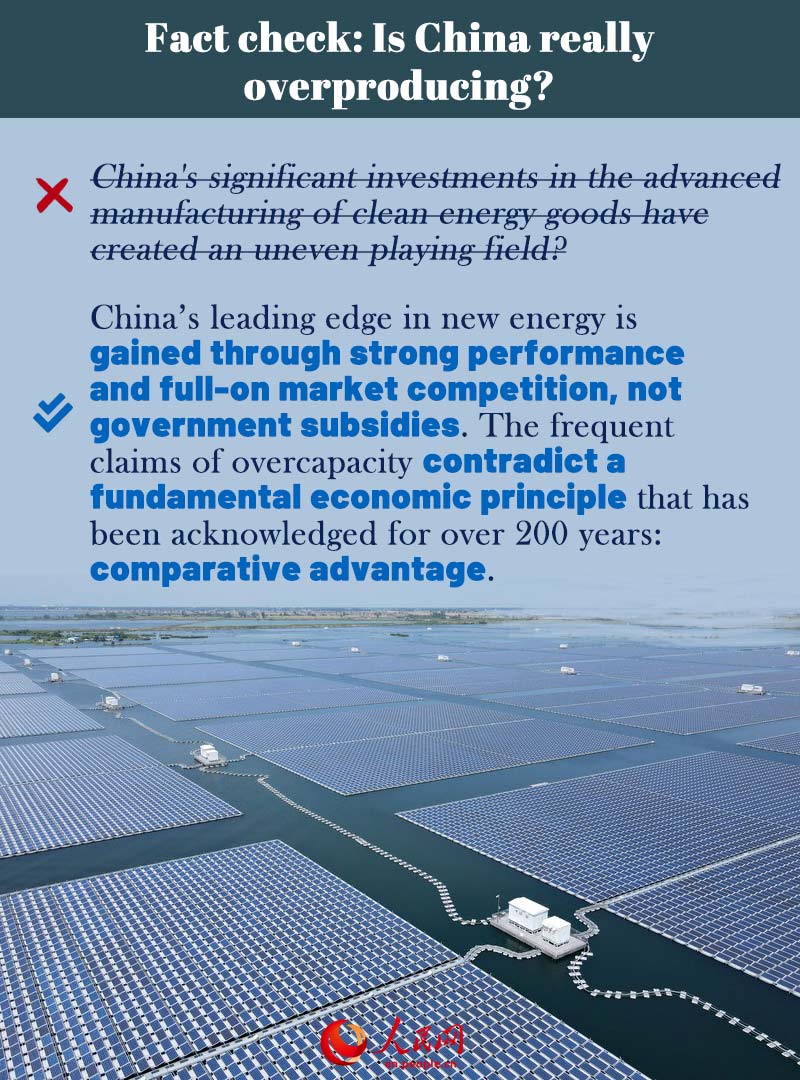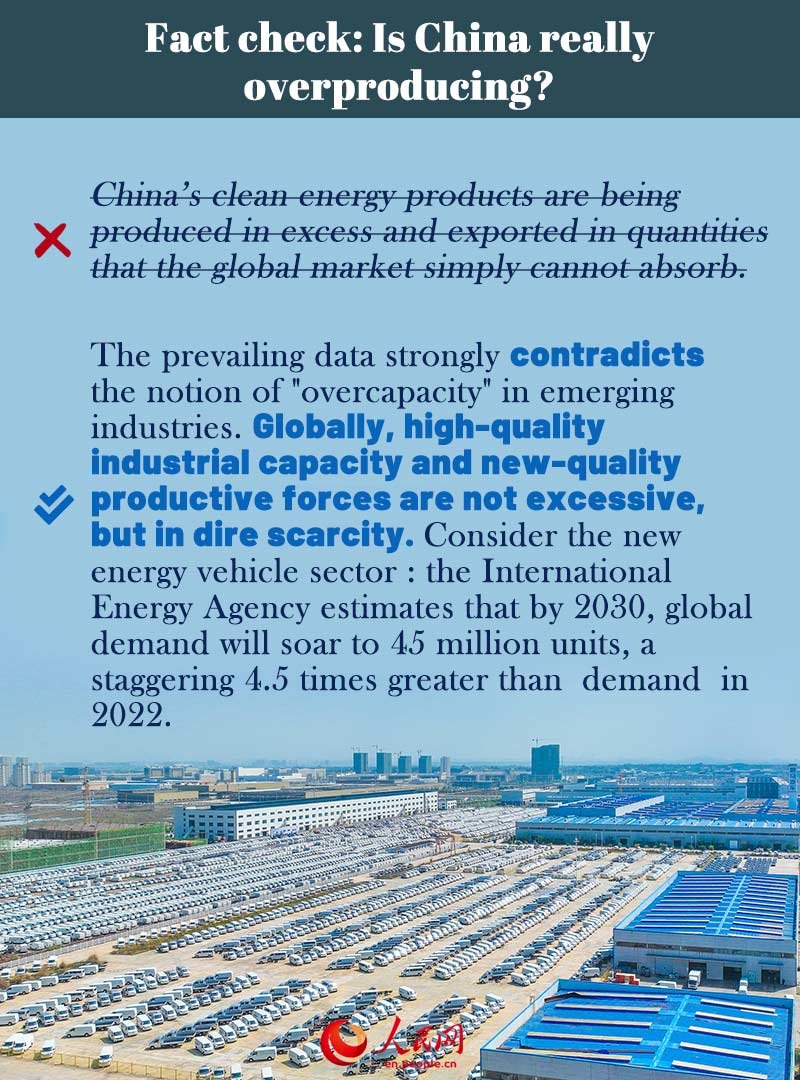Fact check: Is China really overproducing, or is the West just overreacting?
The unending saga of Western finger-pointing at China continues unabated, with the latest accusations that China is producing too much, especially in the field of clean energy products such as electric vehicles and solar panels. According to critics, these products are being produced in excess and exported in quantities that the global market simply cannot absorb.
On April 16, U.S. Treasury Secretary Janet Yellen expressed concerns that China's significant investments in the advanced manufacturing of clean energy goods have created an uneven playing field that puts American workers and businesses at a disadvantage—a situation she believes requires immediate action.
Is the so-called issue of "overcapacity" a genuine global concern, or just another fabricated Western narrative designed to stifle China's ascent? Let's dissect this by examining the facts.

Firstly, it's crucial to evaluate concerns about capacity in accordance with market economy principles and within the broader context of economic globalization, which includes global divisions of labor and markets. China's leading edge in new energy is gained through strong performance and full-on market competition, not government subsidies. The new energy industry in China has seen remarkable growth over decades, with competitive strengths stemming from its vast market size, comprehensive industrial infrastructure, and extensive human resources. These benefits are also tied to significant investments in research and development by companies and a persistent spirit of entrepreneurship. Through technological advancements, these enterprises have been able to cut production costs and make new energy products more economically accessible.
Even Western media recognize that the frequent claims of overcapacity contradict a fundamental economic principle that has been acknowledged for over 200 years: comparative advantage. Bloomberg has directly challenged Secretary Yellen's assertions by highlighting this key concept. They argue that if one country can produce goods more cost-effectively than another, the latter should not resort to protective tariffs. Instead, it should embrace imports of these economically priced goods, while focusing on exporting products from sectors where it enjoys a competitive advantage.

Secondly, the prevailing data strongly contradicts the notion of "overcapacity" in emerging industries. Globally, high-quality industrial capacity and new-quality productive forces are not excessive, but in dire scarcity. Consider the new energy vehicle sector: the International Energy Agency estimates that by 2030, global demand will soar to 45 million units, a staggering 4.5 times greater than demand in 2022. Similarly, demand for new photovoltaic installations is expected to quadruple, reaching 820 gigawatts by the same year. Current production levels are woefully inadequate to meet these demands, particularly the burgeoning need for new energy products in many developing countries.
Moreover, this perspective is now being echoed by Western media , challenging previous misconceptions about overcapacity. For instance, Bloomberg has highlighted the fact that in the lithium-ion battery sector, production has yet to meet anticipated targets. In the wind power sector, where the export of large turbines presents significant logistical challenges, global supply would face a severe deficit without the proactive investment strategies of Chinese companies. These insights confirm that the industry is far from experiencing overcapacity; rather, it is navigating a landscape of significant undercapacity.

Lastly, it is important to recognize that the development of China's clean energy products benefits the world significantly. China has become a reliable source of high-quality production capacity and is poised to be a major contributor to global green development. By exporting electric vehicles, lithium batteries, and photovoltaic products, China not only enriches global supply but also helps alleviate inflationary pressures worldwide. Additionally, these exports make a substantial contribution to the global response to climate change and support the transition towards a greener, low-carbon economy.
In conclusion, the idea that China's overcapacity is detrimental to the global market is a complete fallacy. Those who perpetuate this narrative to justify protectionist measures stand to gain nothing; they will only destabilize and disrupt industrial and supply chains, obstruct the global transition to green energy, and inhibit the growth of emerging sectors. Attempts to block China's clean technology represent a protectionist disaster, poised to impede progress toward achieving net-zero emissions.
Photos
Related Stories
- Western "overcapacity" accusation is typical double standard: China's commerce ministry
- China flays overseas talk about 'overcapacity'
- The real issue is not overcapacity but competitiveness
- US claims of China's 'overcapacity' groundless
- U.S. notion of "China's overcapacity" a complete fallacy
- FM spokesperson refutes western accusation of "overcapacity"
Copyright © 2024 People's Daily Online. All Rights Reserved.









